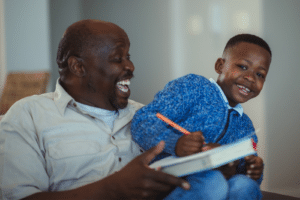Imagine waking up in the morning and sitting up in bed, and repeating that action 41 more times.Imagine turning your body to put your feet on the floor 42 times.
Taking a step toward your bedroom door with your left foot 42 times.Then with your right foot 42 times. And then again with your left another 42 times, and so on.
Imagine you turn the bathroom sink’s faucet handle on (and off) 42 times, wet your toothbrush 42 times, and so on.
Imagine this being just the beginning of your day. Every day.
For Elizabeth McIngvale, this was no imaginary scenario. It was reality. Her mind insisted that if she didn’t do everything 42 times, something horrible – serious illness, injury or even death – might befall her family.
Elizabeth McIngvale, PhD, LMSW, was diagnosed with OCD at the age of 12 and underwent treatment that included both inpatient and outpatient therapy. In this six-part video series, Dr. McIngvale discusses OCD from her unique position as a patient and a psychologist.
Dr. McIngvale shares critical information that will help parents and caregivers better understand the condition, including:
- The diagnostic criteria/basic principles of OCD and appropriate treatment.
- The impact of stigma and low access to appropriate mental health treatment.
- The importance of support in treatment.
- The importance of relapse prevention and advocacy.
More importantly, Dr. McIngvale shares her own personal story of diagnosis, the affects of her behavior on other family members, the long search for care, navigating treatment, slowly accepting her disease, and traversing the pathway of her life. Parts two and three of the video are particularly compelling as she goes into detail about how her disease accelerated, learned there were others like her, that she could enjoy an improved quality of life even though the disease would be with her always.
Although the series as a whole takes the viewer on an emotional journey – some sections may be more difficult to watch than others – Dr. McIngvale shares her story openly and without reservation. In doing so, she provides rare insight into OCD and offers definitive hope for those who experience the disease and their caretakers.
Elizabeth McIngvale, PhD, LMSW, is an assistant professor at Baylor University’s Diana R. Garland School of Social Work. She is also the founder of the Peace of Mind foundation, a non-profit foundation dedicated to Obsessive Compulsive Disorder, also known as OCD. She is a national spokesperson for the International Obsessive Compulsive Foundation and a licensed therapist in Texas. Dr. McIngvale was recorded during her keynote presentation at Claritycon2017, hosted by Clarity Child Guidance Center, on Friday, June 16, in San Antonio, Texas.
In case of a medical emergency, please call 911. For a child’s mental health emergency (ages 3 to 17), call Clarity Child Guidance Center at 210-582-6412. Our crisis service department accepts walk-ins 24/7. You can find directions to our campus here. Please do not hesitate to reach out to us. We are here to help!










